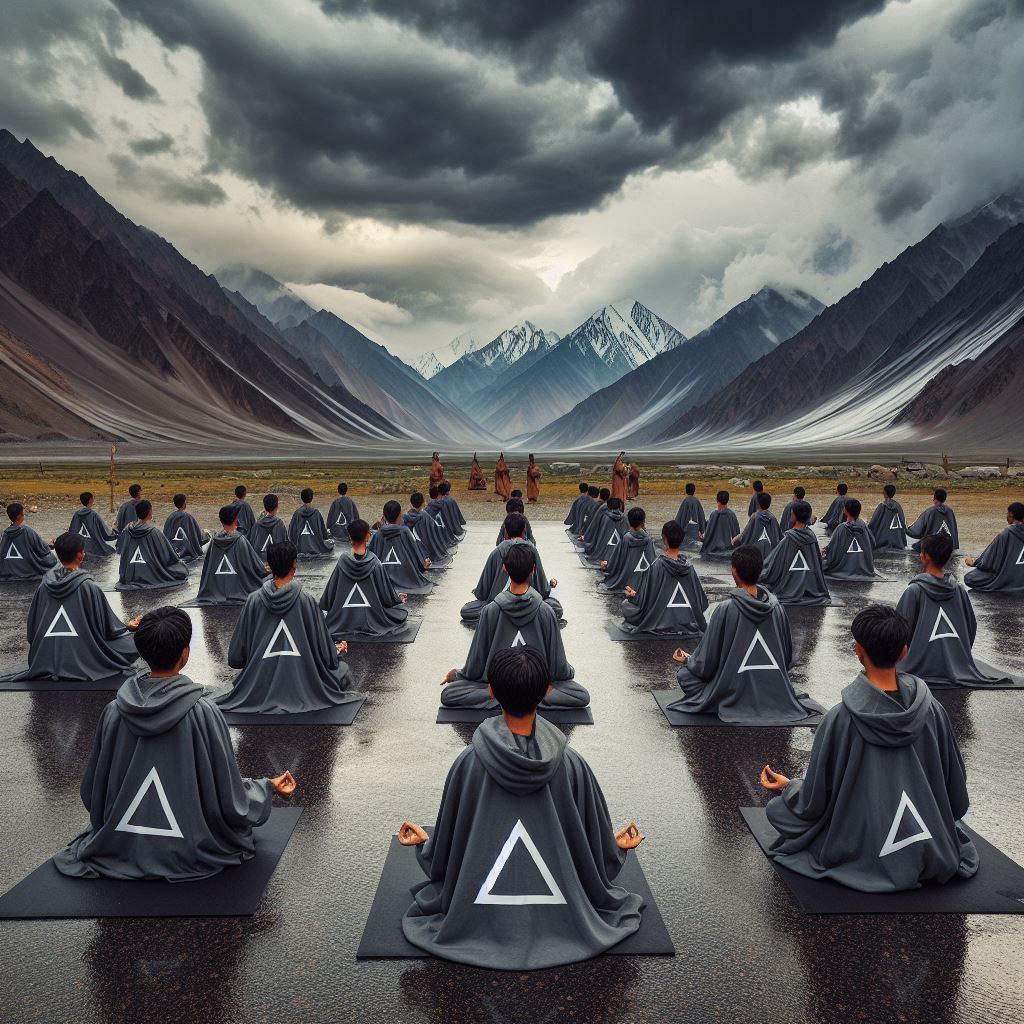Zaar memories #2

"Go grab that sack over there," said the old man in the knitted hood. "But be careful, it's St. John's wort. If you crush it, it'll lose its power."
He wasn't joking. No one here joked when it came to herbs.
But they talked—like they breathed. Constantly.
Sacks, baskets, half-dried leaves — everything had a scent. Bitter, earthy, sharp. It smelled of a mindfulness yet untouched by the marketing arm of the self-care industry.
"Did you know we're not the first ones here?" said his neighbor, a fellow of about forty with a shaved head and the clean hands of a surgeon. He was sorting through roots, but spoke in almost a whisper.
"Not the first?"
"No. This spot..." — he gestured somewhere out into the sands — "used to be a settlement. They say maybe even a monastery of some kind. Then, ashes. Then, they arrived."
He fell silent, as if sensing he'd said too much.
But then he added:
"'They' were the first of the Blacks. Or as we tend to say here — He was."
Later, during a break, they were given a slightly bitter herbal tea. It warmed the throat and released fear. Old men in white sat at the table. One of them, with a crooked finger, was holding something strange — a glossy magazine.
"Watkins' Mind Body Spirit," he said, noticing the newcomer's glance. "London. A ranking of the most influential spiritual leaders on the planet."
He chuckled.
"One year, He was ranked 27th. Then He vanished from the lists. Been off the grid ever since. Not online, not in any photo. Only within us."
"Who is He?" our hero asked. Cautiously. Almost like a child.
The old man licked his fingers and turned a page.
"He didn't leave a name. Only a direction. It wasn't a cult; it was an instruction manual for an exodus."
"An exodus?"
"A way out. From everything."
He paused.
"When the 'second technological cycle' began and the first wave of digital schizoids started hitting the wall," the old man continued, "He simply disappeared. And some of those who remained started building this. Not as a temple. As a refuge."
"A refuge from what?"
"From people."
After lunch, there was work in the shade. Drying herbs. One of the herbalists, a silent man with kind eyes, handed the newcomer a long wooden board with engraved words.
"First, you run from pain. Then, from comfort. Then, from meaning. Only then do you arrive here."
"Did He write this?"
"No. It was one of the first Greys," the man replied. "But they say the words came to him in a dream."
As the day came to an end and the sun grew gentler than it was in the morning, they sat on the roof of an old barn, drinking something smoky.
"Listen," said the neighbor, the one with the shaved head, "there's a theory. That He wasn't alone. That there were nine of them. And that ours stayed. The others... are either dead or in other places."
"What places?"
"Some say the Andes. Some, near Ladakh. One is in a Japanese monastery where they teach you to be silent for years. But ours stayed. And disappeared. So he wouldn't become an icon. So that everyone here would live not 'in the name of,' but 'for a reason'."
That evening, alone, our hero sat by the window. The magazine in his hands.
The article was titled: "The Ones Who Disappear: A Study of Modern Mystics and Their Refusal of Power."
He reread one sentence over and over:
"A true leader is one who is not spoken of in the present tense."
He closed the magazine.
Looked at his own hands.
Smelled them.
They smelled of herbs. And of meaning.
